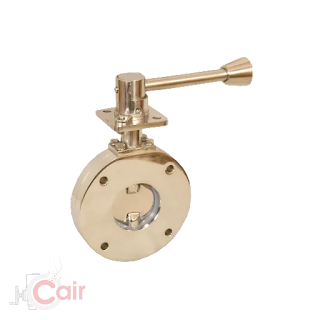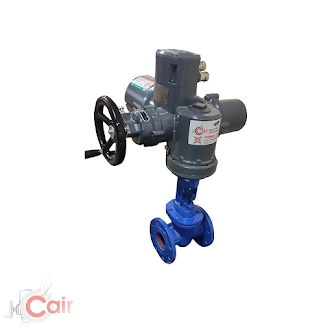Why Resilient Gate Valves are The Best Choice For Your Needs
Why Resilient Gate Valves?
Resilient gate valves are an important component in many plumbing and irrigation systems. These valves are designed to withstand harsh environmental conditions and provide reliable operation for extended periods. The resilient gate in these valves is made of a durable material such as rubber or PVC, which allows it to provide a tight seal and resist corrosion. Additionally, the design of the valve body allows for easy maintenance and repair.
One of the main benefits of resilient gate valves is their ability to resist debris and sediment buildup. Unlike other valves, which can become clogged with debris and require frequent cleaning, resilient gate valves have a self-cleaning mechanism that prevents buildup and ensures uninterrupted flow. This makes them particularly useful in irrigation systems, where water containing sediment and debris are common.
Another advantage of resilient gate valves is their ease of operation. The gate is held by a simple mechanism that can be easily adjusted by hand, allowing for precise water flow control or other fluids. This also makes them less prone to failure and less expensive to maintain than other valves.
Overall, resilient gate valves are reliable and cost-effective for controlling fluid flow in various applications. Whether you're looking to install a new plumbing system or replace an old valve, resilient gate valves offer many advantages that make them a great choice for any project.
The Pros of Resilient Gate Valves
Resilient gate valves are popular for plumbing and irrigation systems due to their numerous advantages. These valves are designed to be durable, reliable, and cost-effective, making them an ideal solution for many applications.
One of the main benefits of resilient gate valves is their ability to provide a tight seal, even under harsh environmental conditions. The resilient gate is made of a durable material such as rubber or PVC, which allows it to resist corrosion and provide a long-lasting seal. This makes them ideal when reliability is crucial, such as in water treatment plants or industrial applications.
Another advantage of resilient gate valves is their ability to resist debris and sediment buildup. Unlike other valves, which can become clogged and require frequent cleaning, resilient gate valves have a self-cleaning mechanism that prevents buildup and ensures uninterrupted flow. This makes them particularly useful in irrigation systems, where water containing sediment and debris are common.
Resilient gate valves are also easy to operate and maintain. The gate is held by a simple mechanism that can be easily adjusted by hand, allowing for precise water flow control or other fluids. This also makes them less prone to failure and less expensive to maintain than other valves.
In addition to their practical benefits, resilient gate valves are environmentally friendly. They are designed to be leak-proof, which helps to conserve water and prevent pollution. This makes them a great choice for sustainable building projects or applications where environmental impact is a concern.
Overall, resilient gate valves offer numerous advantages over other types of valves. They are durable, reliable, cost-effective, and easy to operate and maintain. If you're looking for a valve that can withstand harsh environmental conditions and provide long-lasting performance, resilient gate valves are an excellent choice.
The Cons of Resilient Gate Valves
While resilient gate valves have many advantages, some potential drawbacks should be considered before choosing them for a plumbing or irrigation system.
One of the main cons of resilient gate valves is that they can be more difficult to install than other valves. Because they require a specific orientation and alignment, installation can be time-consuming and require skilled labor. Additionally, the valve body must be mounted securely to prevent shifting or misalignment over time.
Another potential downside of resilient gate valves is that they can be more expensive than other valves. This is due to specialized materials, such as rubber or PVC, which are needed to provide the valve with durability and resilience.
Resilient gate valves are also prone to wear and tear over time, particularly in frequently opened and closed applications. This can result in leaks or other issues requiring maintenance or replacement.
Finally, resilient gate valves may not be suitable for high-pressure applications. The resilient gate may deform under high pressure, leading to leaks or other issues. If a system requires high-pressure valves, other valves, such as a ball or butterfly, maybe a better choice.
In conclusion, while resilient gate valves have many advantages, they may only be suitable for some applications. Before choosing resilient gate valves, it's important to carefully consider the system's specific requirements and weigh the potential benefits and drawbacks. This will help to ensure that the right valve is chosen for the job, providing reliable and efficient performance over the long term.
Why Resilient Gate Valves Are the Best Choice
Resilient gate valves are often the best when choosing the right plumbing or irrigation system valve. These valves offer numerous advantages over other valves, making them an ideal solution for many applications.
One of the main reasons that resilient gate valves are the best choice is their ability to provide a tight seal, even under harsh environmental conditions. The resilient gate is made of a durable material such as rubber or PVC, which allows it to resist corrosion and provide a long-lasting seal. This makes them ideal when reliability is crucial, such as in water treatment plants or industrial applications.
Another advantage of resilient gate valves is their ability to resist debris and sediment buildup. Unlike other valves, which can become clogged and require frequent cleaning, resilient gate valves have a self-cleaning mechanism that prevents buildup and ensures uninterrupted flow. This makes them particularly useful in irrigation systems, where water containing sediment and debris are common.
Resilient gate valves are also easy to operate and maintain. The gate is held by a simple mechanism that can be easily adjusted by hand, allowing for precise water flow control or other fluids. This also makes them less prone to failure and less expensive to maintain than other valves.
In addition, resilient gate valves are environmentally friendly. They are designed to be leak-proof, which helps to conserve water and prevent pollution. This makes them a great choice for sustainable building projects or applications where environmental impact is a concern.
Overall, resilient gate valves offer numerous advantages over other valves, making them the best choice for many applications. Whether you're looking for a valve that can withstand harsh environmental conditions or is easy to operate and maintain, resilient gate valves are an excellent choice that will provide reliable and efficient performance over the long term.
How to Install a Resilient Gate Valve
Installing a resilient gate valve is a straightforward process that can be completed with the right tools and materials. Here are the basic steps to follow:
Shut off the water supply and drain the pipes. This will ensure that no water flows through the pipes during installation.
Cut the pipe where the valve will be installed using a pipe cutter. Make sure the cut is clean and free of burrs.
Prepare the valve by removing any protective caps or packaging materials. Check the valve for any defects or damage before installation.
Apply PVC primer to both the pipe and the valve body. Allow the primer to dry for a few seconds.
Apply PVC cement to both the pipe and the valve body. Quickly insert the valve body onto the pipe, ensuring it is properly aligned.
Hold the valve for a few seconds until the cement has set.
Turn the valve handle to the open position to ensure it works properly.
Turn the water supply back on and check for leaks. Turn off the water supply and tighten the connections if any leaks occur.
Following the manufacturer's instructions when installing a resilient gate valve is important, as installation procedures may vary depending on the valve model and size. Additionally, it's important to ensure that the valve is properly aligned and mounted to prevent shifting or misalignment over time. A Resilient Gate Valve Supplier can provide reliable and efficient performance for many years with proper installation and maintenance.




Comments
Post a Comment